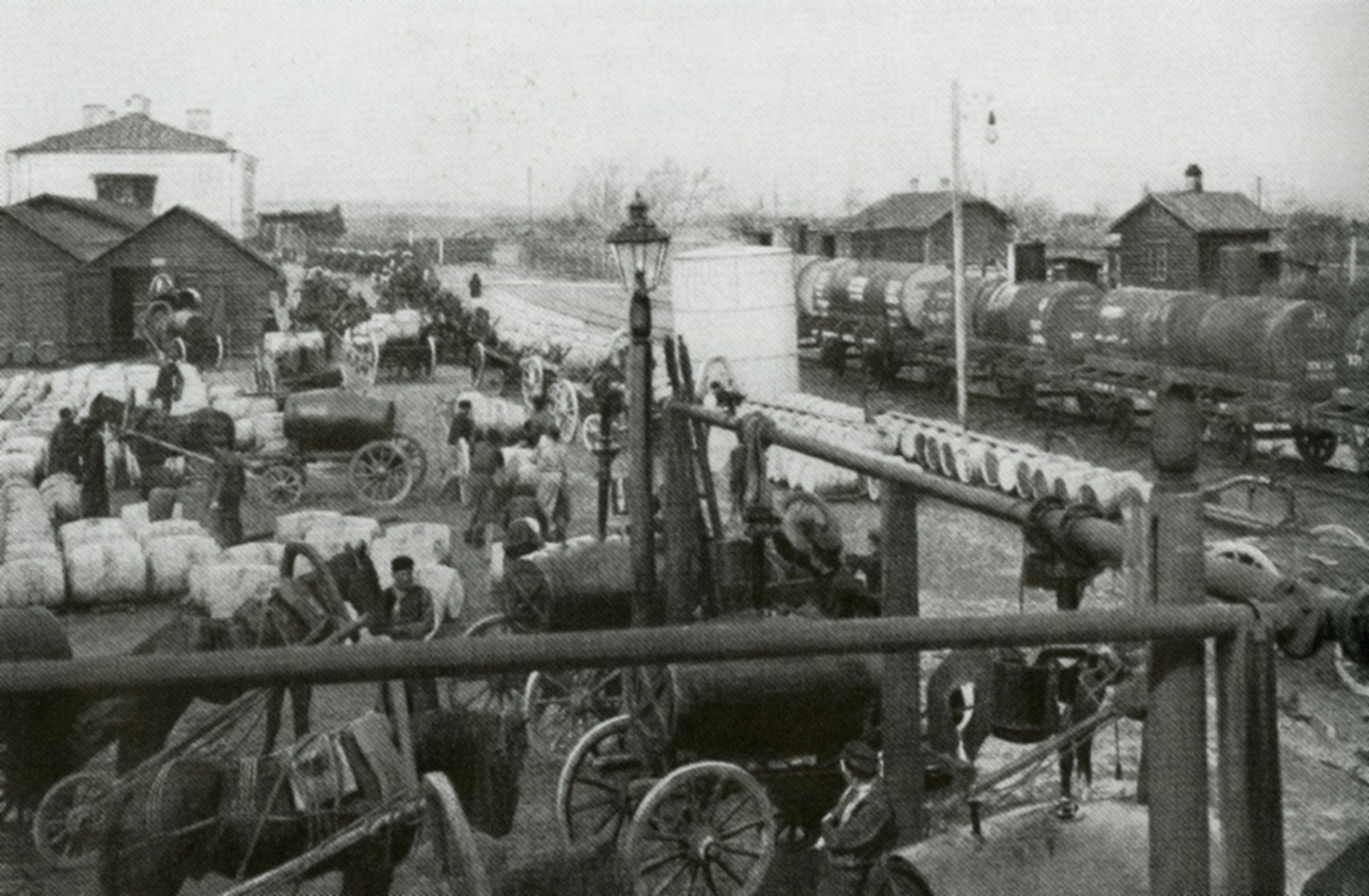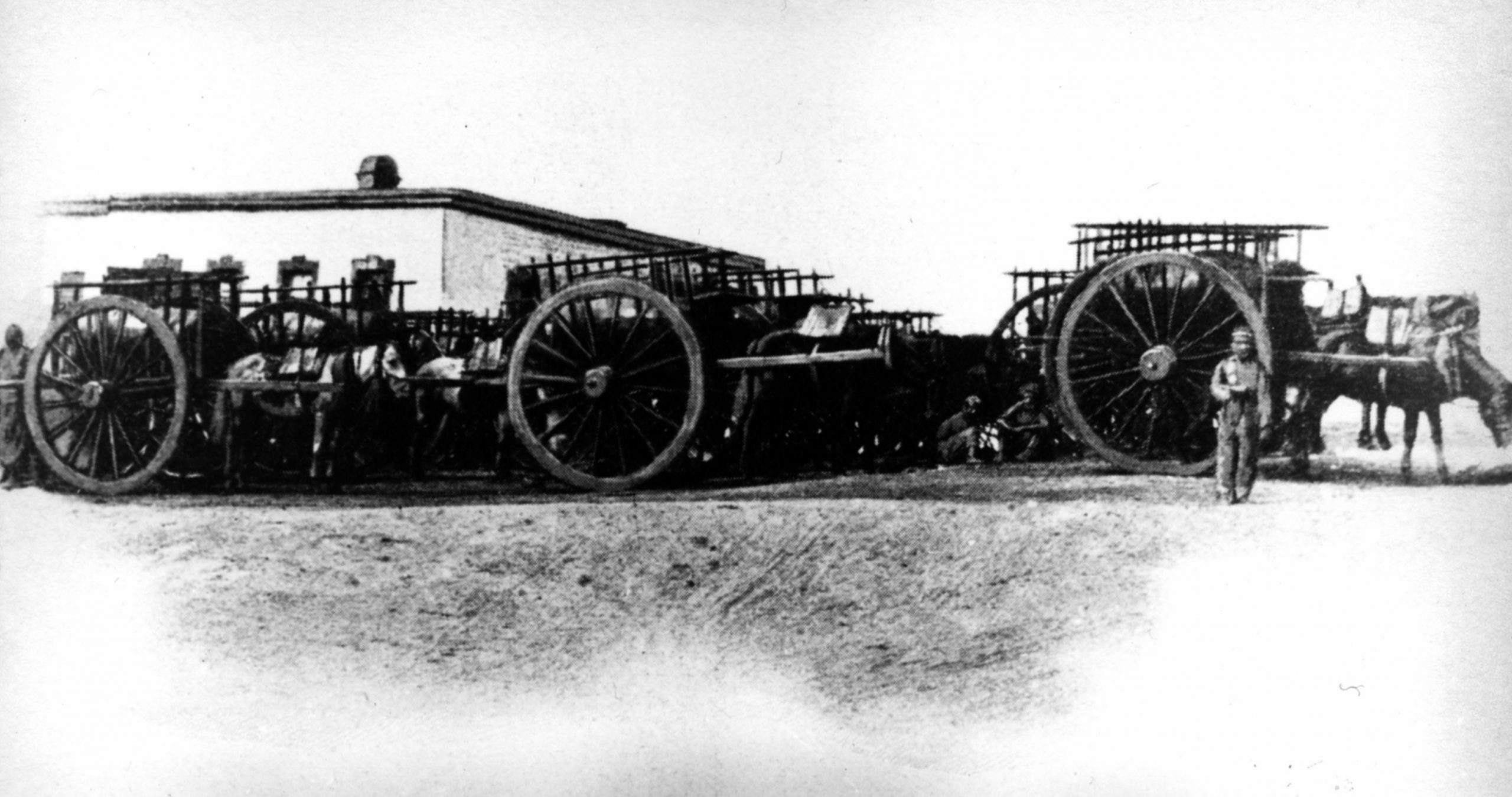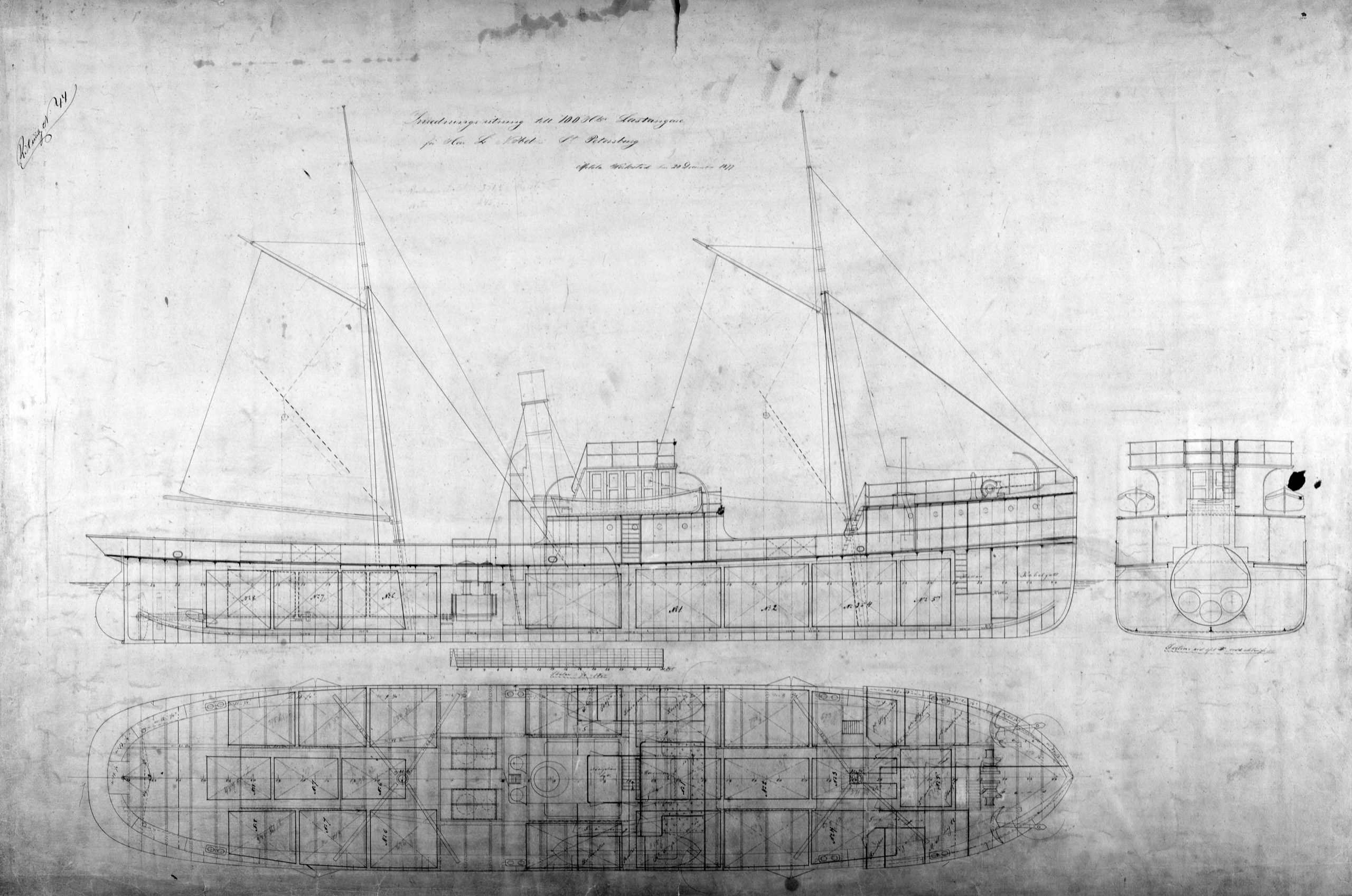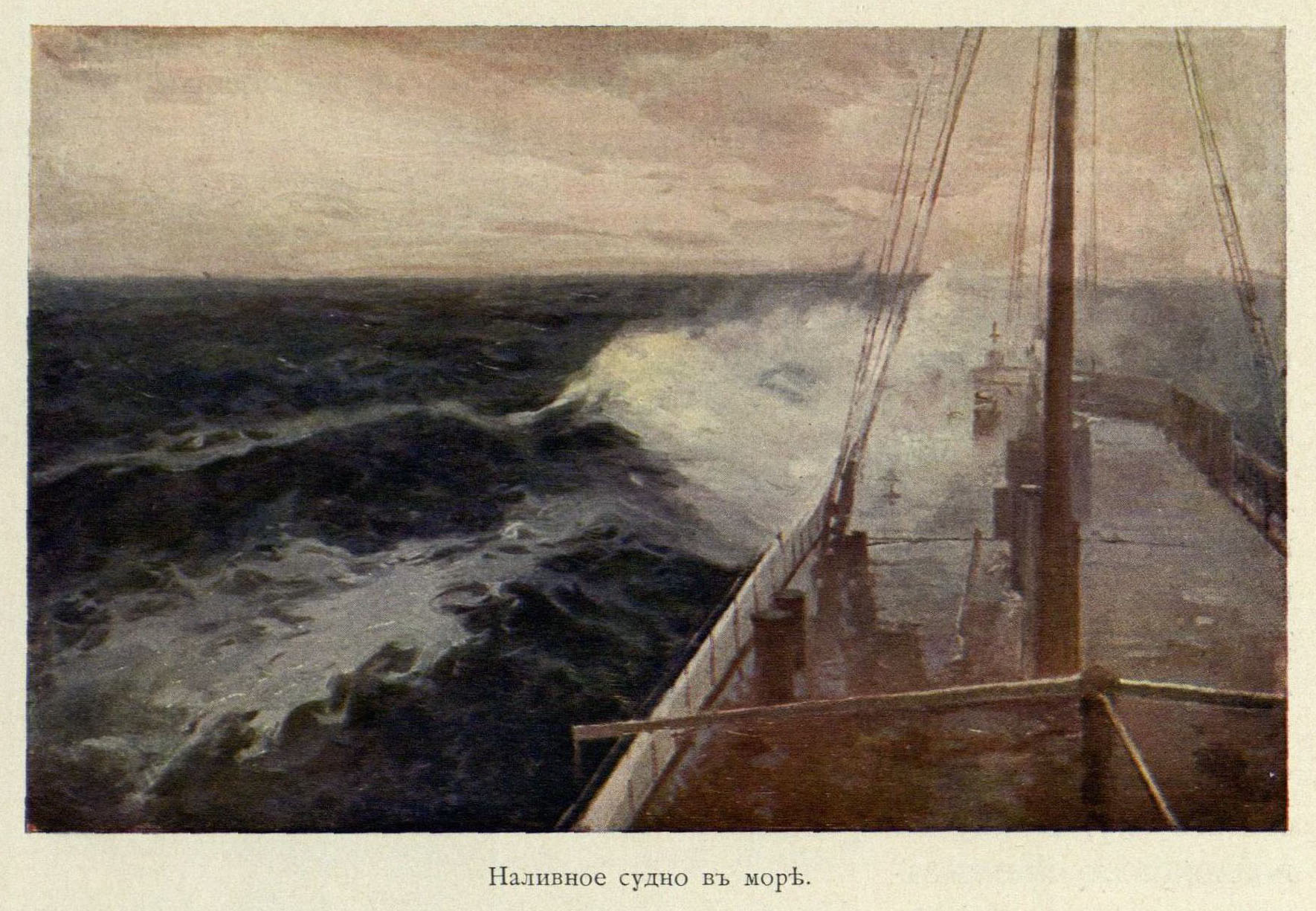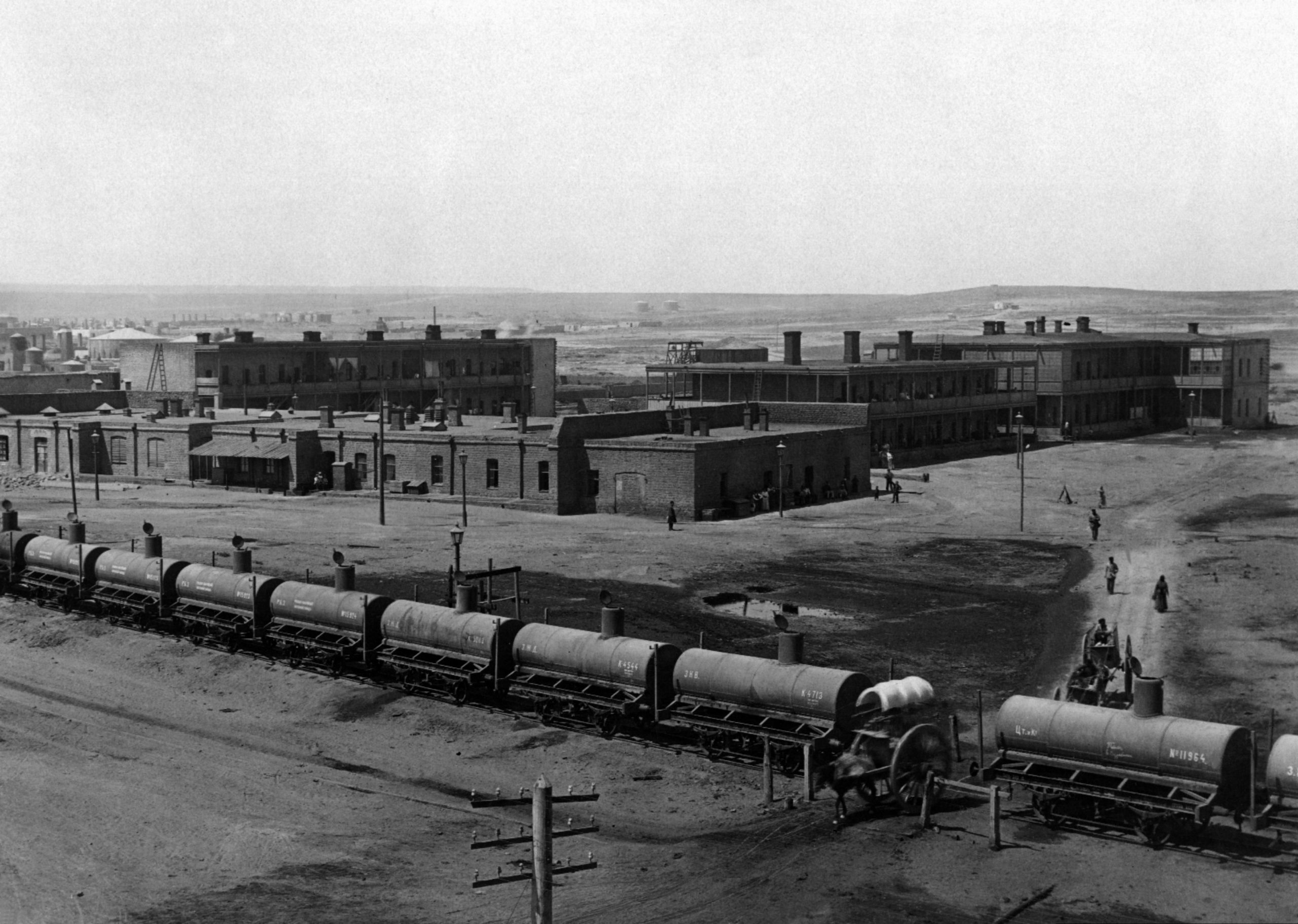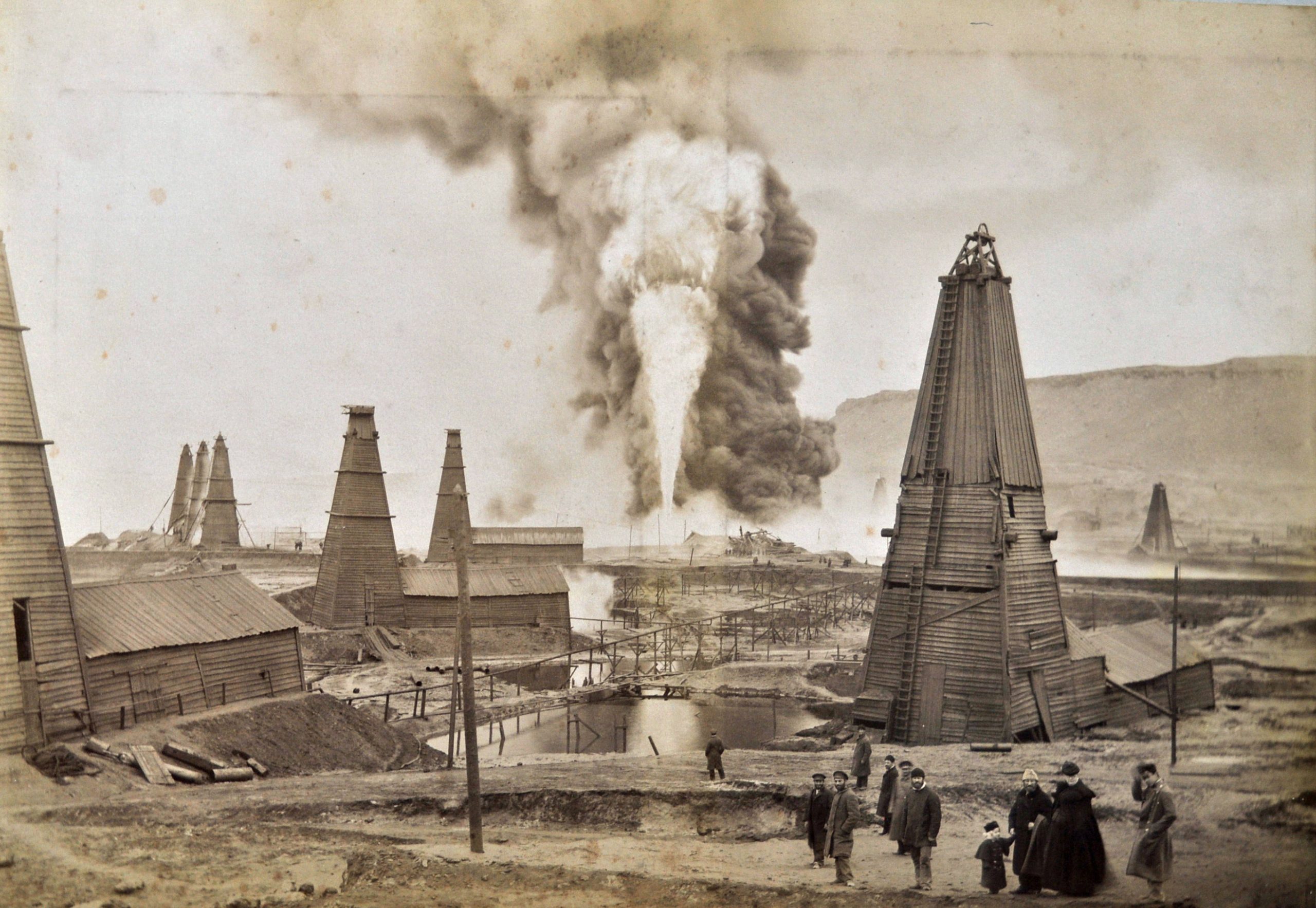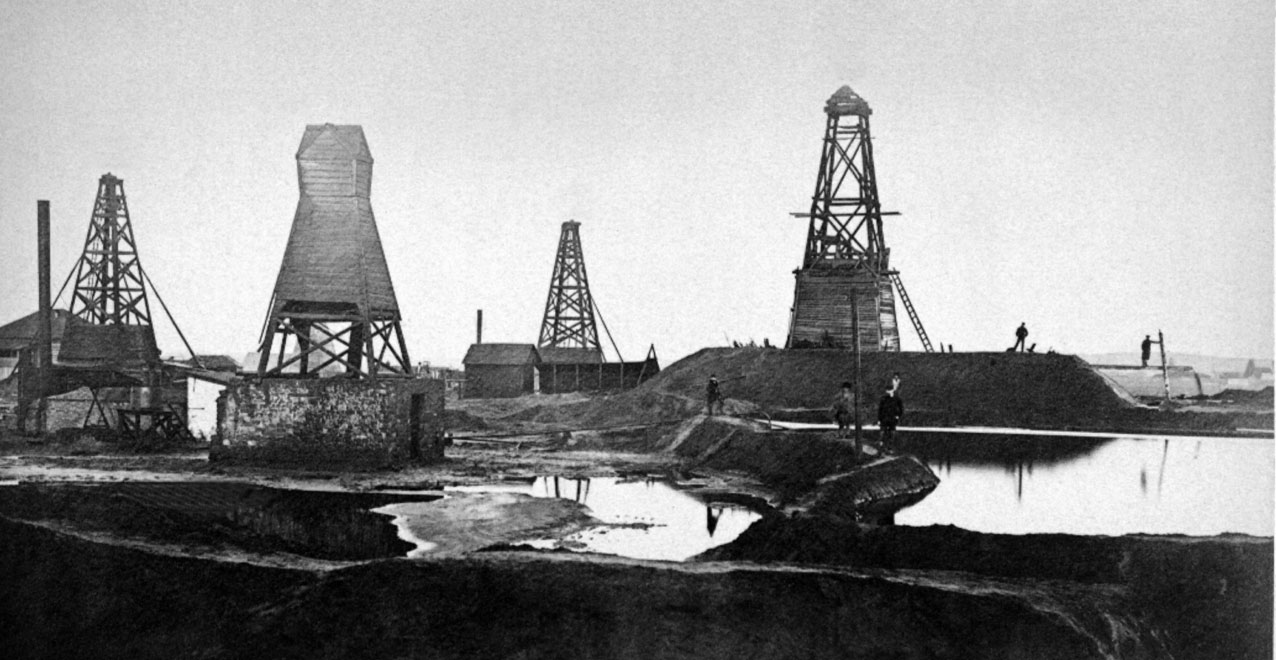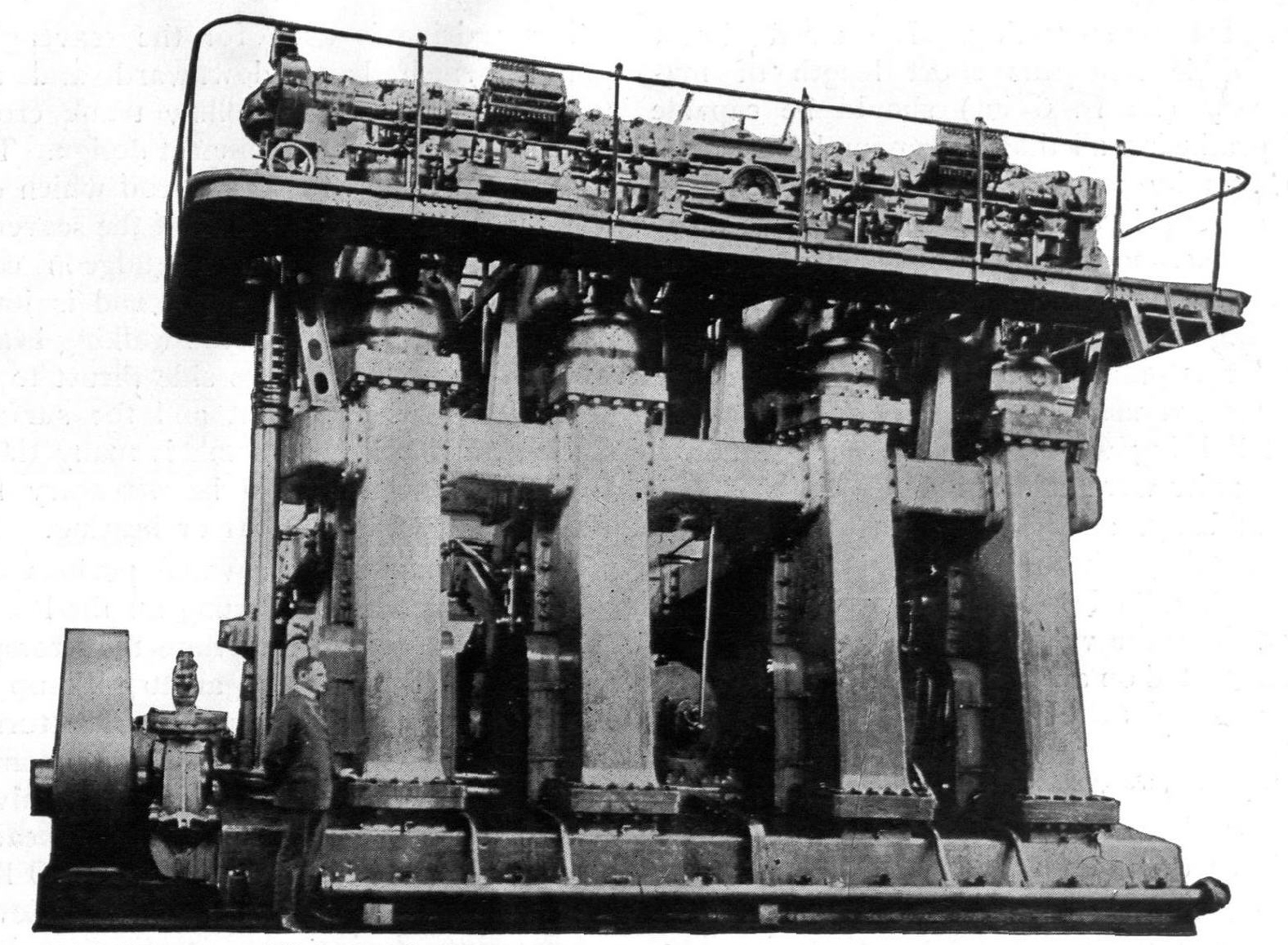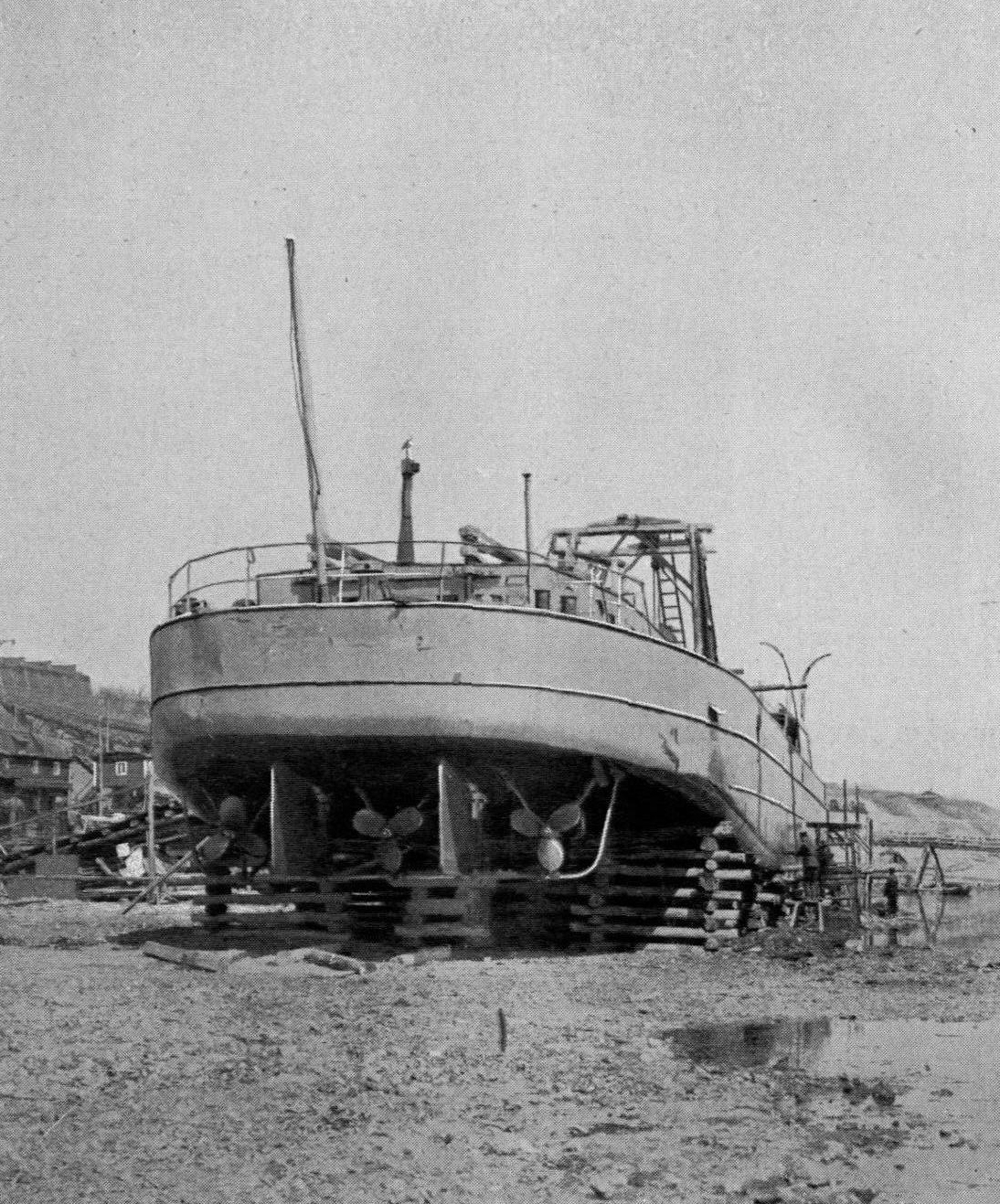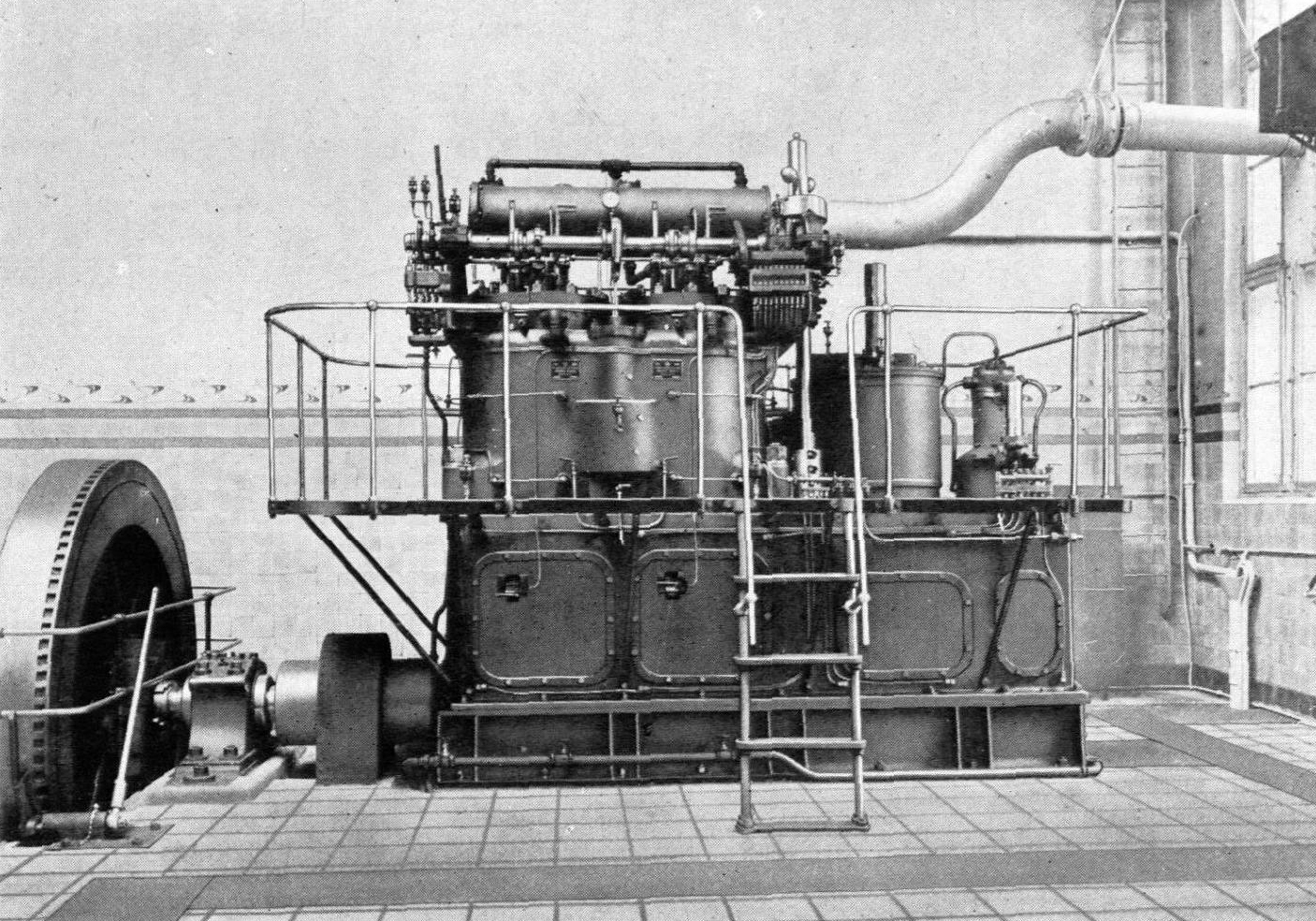The Nobel brothers revolutionise Russian oil management
When Robert Nobel realised the possibilities of oil extraction in Baku on the Caspian Sea, oil management was very primitive. The oil was scooped out of the wells by hand and transported in wooden barrels on carts pulled by donkeys. The Nobel brothers started to build pumps, pipelines, depots and railway tracks. Ludvig Nobel himself constructed the world's first modern tanker. The effect of this was a total industrial transformation of the oil industry.

